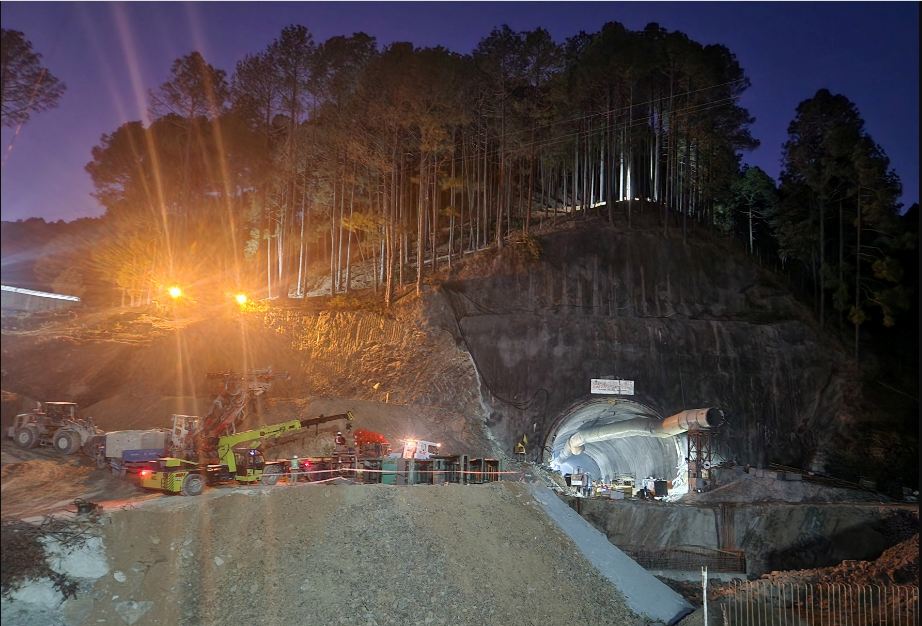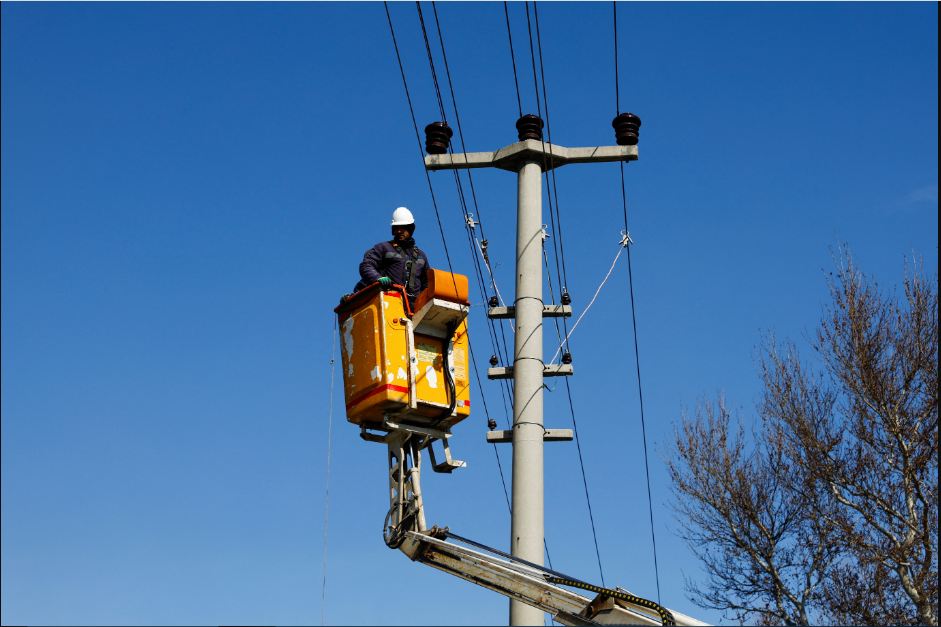Rescuers drill to send more food to trapped workers in Indian tunnel
Silkyara (Reuters) – Rescuers are trying to send cooked food and set up a phone connection to 41 workers trapped for eight days in a collapsed tunnel in the Indian Himalayas as they explore fresh rescue plans after previous attempts stalled, officials said on Monday.
The men have been stuck in the highway tunnel in Uttarakhand state since it caved in early on Nov. 12 and are safe, authorities said. They have access to light and supplies of oxygen, dry food, water and medicines are being sent via a pipe.
Authorities expect that a second, 6-inch pipeline being drilled into the debris for delivery of cooked food will soon be ready, with 42 metres out of an estimated 60 metres already completed, said Bhaskar Khulbe, officer on special duty for the tunnel project.
“Our priority is to save 41 lives who are trapped inside the tunnel. Through this (pipeline) we will be able to send necessary things to them,” federal Road Transport Minister Nitin Gadkari told reporters on Sunday.
Officials are also considering setting up an optical fibre connection through this pipeline, Gadkari added, which can be used insert a camera or phone connection into the tunnel to help workers speak to their families.
The men currently receive nuts, puffed rice, chickpeas and other dry food items via a pipe and the district chief medical officer R.C.S. Panwar said three of them have complained of dysentery.
Rescuers are exploring five new plans to pull out the workers after a machine drilling horizontally into the debris, to create space for the men to come out, developed a snag and a sudden “cracking sound” during efforts to restart it caused panic.
The new plans include drilling vertically from the top of the mountain, which rescuers hope can start by Tuesday as they await arrival of machinery, said Jasvant Kapoor, a general manager at state-run company SJVN, which is involved in the rescue efforts.
Authorities have not said what caused the 4.5-km (3-mile) tunnel to cave in, but the region is prone to landslides, earthquakes and floods.
Fifty to 60 workers were on the overnight shift at the time of the collapse, and those near the exit got out of the tunnel on the national highway that is part of the Char Dham Hindu pilgrimage route.



